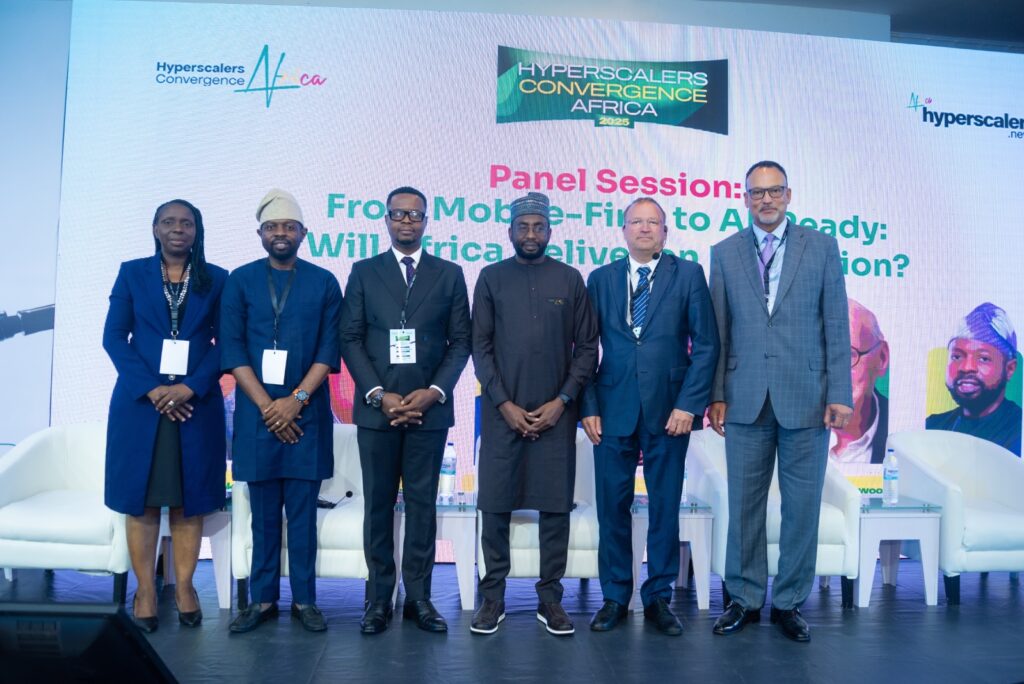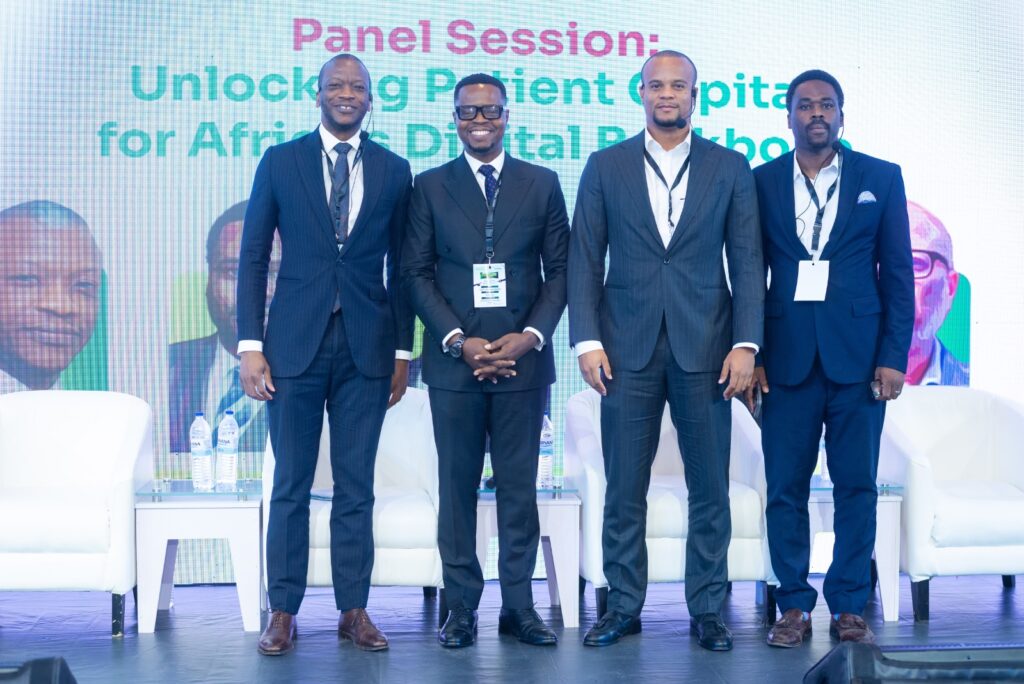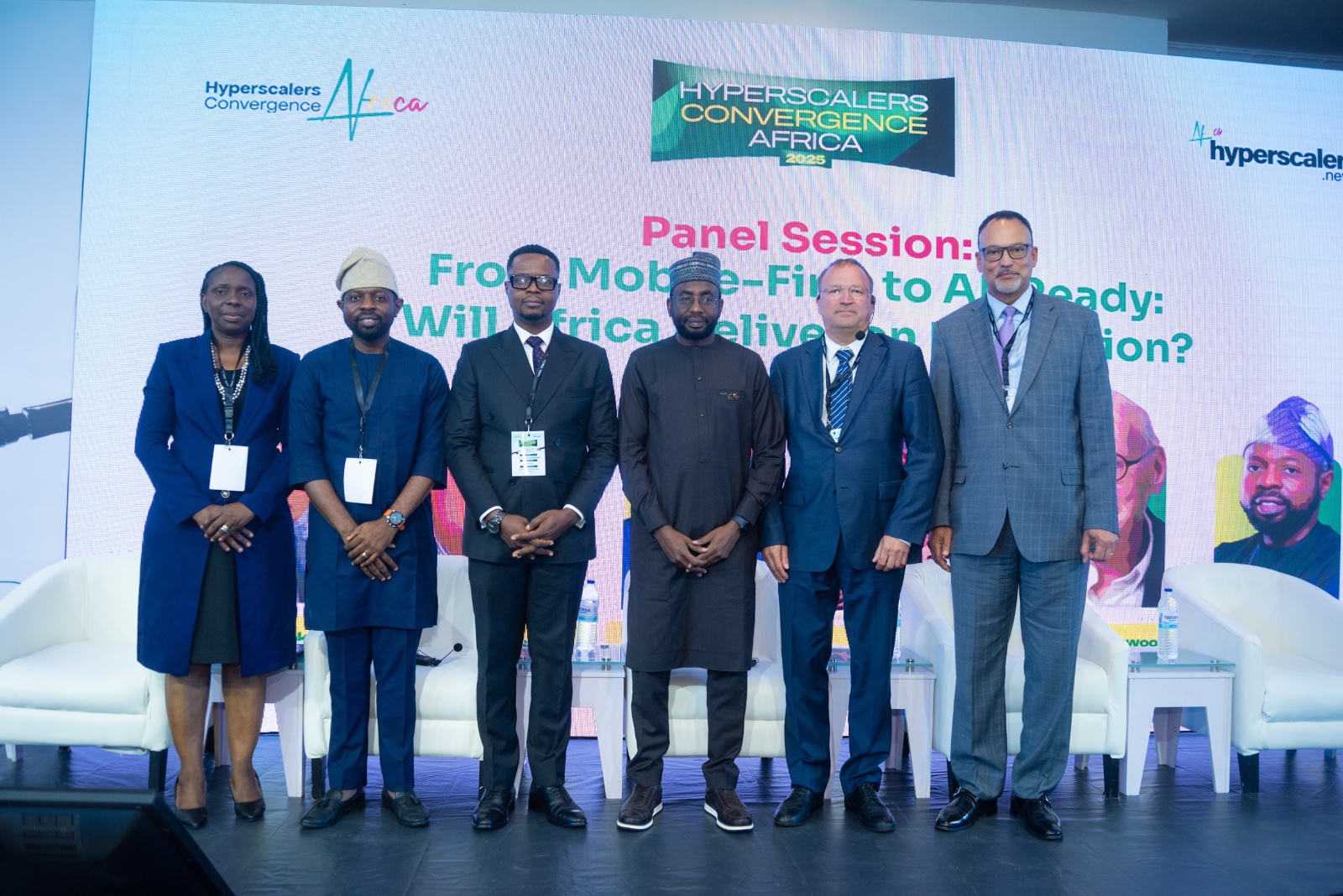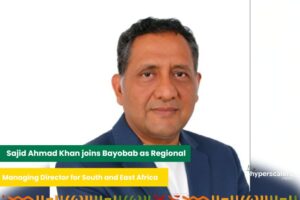Executives from Africa’s digital infrastructure, telecom, and cloud industries gathered in Lagos on Tuesday for Hyperscalers Convergence Africa 2025, calling for urgent reforms to unlock the continent’s next phase of digital growth.
Themed “The Power of Convergence,” the summit brought together leading figures from across the global data and connectivity ecosystem to confront Africa’s infrastructure bottlenecks – from energy and regulation to talent flight and financing.
Speakers included Bill Kleyman, Chief Executive of Apolo.us and Executive Chair for Data Center Programs at Informa; Guy Zibi, Managing Partner at Xalam Analytics; Dr. Kashifu Inuwa Abdullahi, Director General of the National Information Technology Development Agency (NITDA); Shayo Olumide, Vice President, Heavy Industries, Telecoms & Technology at Africa Finance Corporation (AFC); Vivek Mittal, Chief Executive Officer (CEO) of the African Infrastructure Development Association (AFIDA); Ben Roberts, Principal at Digital Economy Advisors; Oguche Agudah, Head, Programme, Pan Africa Fund Managers Alliance and pioneer Chief Executive Officer, Pension Fund Operations Association of Nigeria; Hakeem Adeniji-Adele, Deputy Managing Director, eTranzact; Eero Toivainen, Trade Counsellor West Africa, Business Finland; Bukola Ajayi, General Manager, Architecture and Enterprise IT, MTN Nigeria; Akeem Adeshina, Chief Commercial Officer, IHS Nigeria; Roger Shutte, General Manager, Infrastructure & Cloud Engineering, MTN Nigeria; Johnson Agogbua, Chief Executive Officer, Kasi Cloud, and Dr. Ayotunde Coker, CEO of Open Access Data Centress
In his keynote, Bill Kleyman called Africa “one of the world’s fastest-growing digital markets” but warned that energy shortages could choke progress.

“Connectivity is the lifeblood of people. It’s how we live, work and play – and that’s why major organisations are moving aggressively into Africa,” he said.
Kleyman noted that data-center power demand on the continent is growing at 20–25% annually and could reach 8,000 gigawatt-hours. “The industry is at a point where success requires two things: power and bravery,” he said. He added that global AI adoption is raising new challenges, with rack densities climbing from 16 to 60 kilowatts and only about 10% of facilities ready for AI workloads. “Vision without execution is just hallucination,” he told delegates. “Africa has a chance to seize its nugget in this digital gold rush.”
On a panel about scaling to 2,500 MW of capacity, Johnson Agogbua, CEO of Kasi Cloud, warned that talent, not technology, could become the greatest bottleneck. “We’ll solve power and connectivity. But can we train enough people – and keep them here?”
Roger Shutte, General Manager for Infrastructure & Cloud Engineering at MTN Nigeria, echoed the concern: “As we skill people up, how do we enable them to stay, to support local businesses, and to provide the digital sovereignty we require?”
Muhammed Rudman, CEO of the Internet Exchange Point of Nigeria, said IXPN is working to “domesticate content” and reduce reliance on international routes. “Before now, Nigeria’s networks were largely access networks, always reaching out to content abroad. What we’re doing is keeping that content home.”
Kashifu Inuwa Abdullahi, Director General of the National Information Technology Development Agency (NITDA), used the AI and policy sessions to lay out a practical roadmap for sovereignty at scale. Africa’s digital shift, he said, must pair bold vision with incremental execution and local problem-solving that can scale region-wide—“many global tech giants began as community innovations solving local problems.” He urged policymakers, innovators, and the private sector to co-create adaptive, data-driven rules “so technology serves humanity, not the other way round,” citing NITDA’s Intelligent Regulatory Framework as a model that evolves with evidence while protecting the public interest. He pointed to Nigeria’s 3 Million Technical Talent (3MTT) program as a way to turn a youthful population into a productive asset, and framed AI as Africa’s “greenfield opportunity” to tackle health, agriculture, and SME challenges – not just optimize mature systems. He added that the government is moving to bridge capital gaps through new PPP mediation tools and a National Digital Public Infrastructure linking identity, payments, and data platforms.
Opening the summit, Temitope Osunrinde, Executive Director of Africa Hyperscalers, framed the opportunity and the challenge:
“Africa represents 18% of the world’s population, yet accounts for less than 2% of global data-center capacity and under 1% of compute power. Eighty percent of our data is still hosted offshore.”
He noted that investment momentum is building fast as global vacancy rates fall below 1%, citing subsea cable expansions by Meta and Google, and new builds from Visa, Equinix, Raxio, Digital Realty, and Nvidia.
But he warned that 600 million Africans still lack electricity, even as new data centers consume the equivalent of small cities.
“The challenge is not only to power homes but to power Africa’s digital economy,” Osunrinde said. “Governments must fast-track approvals, open telecom networks to competition, and incentivize renewable energy. Fifty percent of a data center’s cost is equipment – imagine the impact if that could enter Africa tax-free.”
Across the sessions, one message stood out: Africa’s digital revolution will depend not just on capital or technology, but on coordination — between power grids and policy, between talent and regulation, between public vision and private execution.

Other speakers include Otuya Okecha, Chief Executive Officer, FibreSol; Abayomi Adebanjo, Director, Legal, Equinix West Africa, Muhammed Rudman, Chief Executive Officer, Internet Exchange Point of Nigeria; Marco Rebecchi, Country Manager, Nokia, West Africa; Josephine Sarouk, Managing Director, Bayobab; Lanre Kolade, Managing Director, Koltronics Nigeria/former Group Managing Director, Csquared; Gbenga Adegbiji, Chief Executive Officer, Geniserve; Tola Talabi, Chief Executive Officer, Elektron Energy; Roger Shutte, General Manager, Infrastructure & Cloud Engineering, MTN Nigeria; Snehar Shah, Chief Executive Officer, IX Africa Data Centres and Karim Amer, Head of IP Business, North, West & Central Africa, Nokia.
Africa Hyperscalers, host of Hyperscalers Convergence Africa, is a leading pan-African digital infrastructure intelligence and market engagement platform that connects executives, policymakers, and investors to shape the continent’s digital future.
Ready to dive deeper into the hyperscale revolution impacting Africa?
READ MORE HERE: www.africa.hyperscalers.news
Contact Us:
Email: projects@hyperscalers.newsPhone: +2348109003350
Follow us on Social Media: Instagram, Facebook, LinkedIn, x





